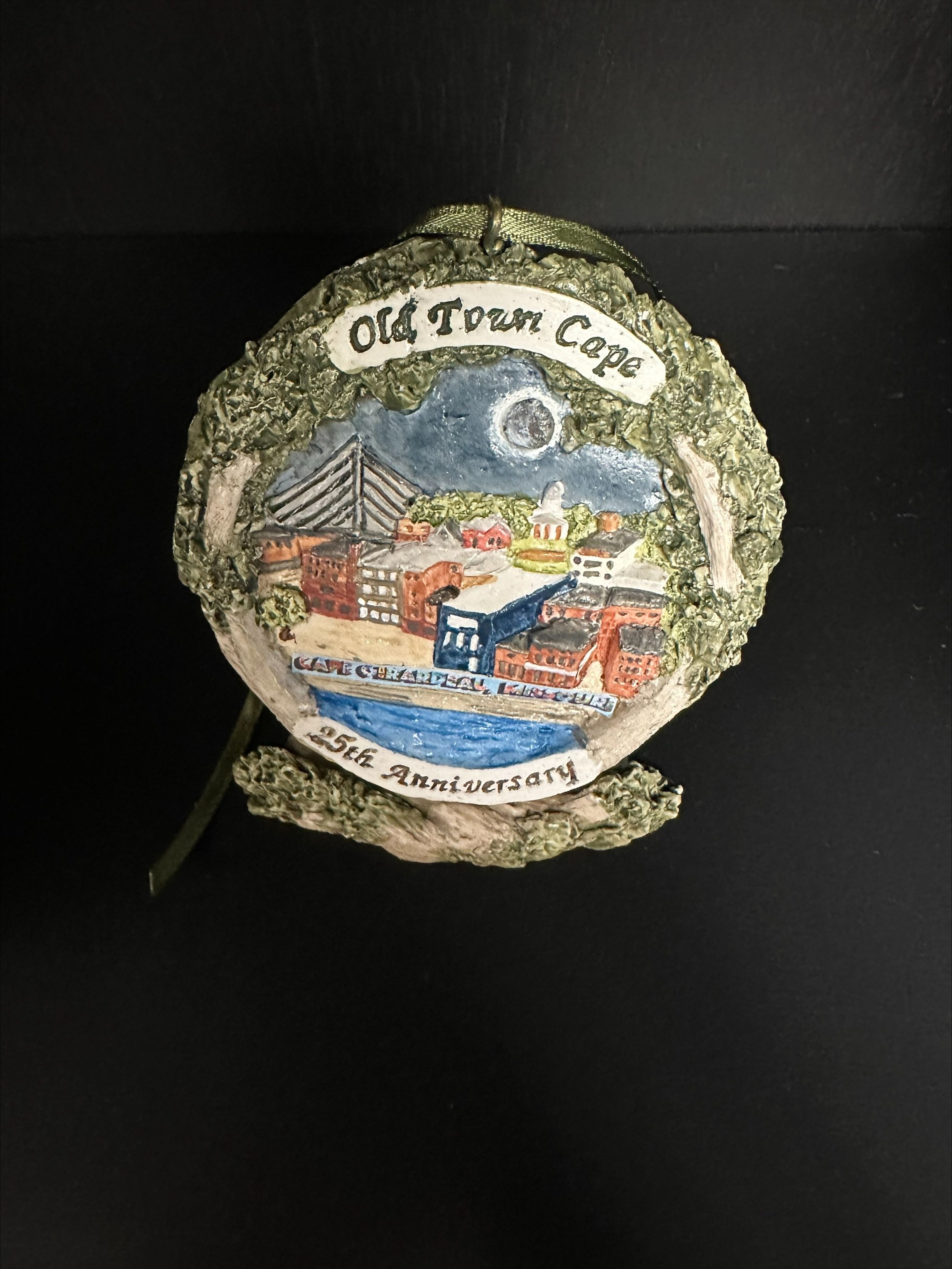A WRITER REMEMBERS PERRY COUNTY FARM; TRANSLATION OF HEINRICH HAUSER'S BOOK CAPTURES MID-20TH CENTURY FARM LIFE
Heinrich Hauser was a prolific, well-known journalist and novelist in Germany when he emigrated in 1939, bringing his estranged Jewish wife, his mistress and his two half-Jewish children to America. He believed in an agrarian ideal but knew little of farming...
Heinrich Hauser was a prolific, well-known journalist and novelist in Germany when he emigrated in 1939, bringing his estranged Jewish wife, his mistress and his two half-Jewish children to America. He believed in an agrarian ideal but knew little of farming.
Eventually Hauser bought farmland in Perry County, and from 1945 to 1948 lived there with his new wife, Rita, and his son, Huc. The experience was both difficult and wonderful for them.
Now the book Hauser wrote in 1950, "Meine Farm am Mississippi," is viewed as both a compelling adventure story and "historical geography." A translation of "My Farm on the Mississippi" will be published this spring by the University of Missouri Press.
"He tells us about a way of life that has been lost for a long time," says translator Curt Poulton, who teaches geography at the University of Colorado at Colorado Springs.
"Hauser describes his adventures as being in the part of America a lot of Americans would like to believe in," Poulton says. "But even in 1946, it was in the past."
Only 3 percent of the American population are farmers, Poulton points out. "The rest of us know nothing about farming."
Hauser was an idiosyncratic figure in Germany. His book "The Last of the Sailing Ships" made him a famous writer at 21. Another book won a prestigious prize in 1929. But he saw that writers would have a difficult time under the Nazis. Yet others were mad at him for dedicating a book to Gestapo chief Hermann Goerring, Hauser did so because he loved flying, and Goerring had written a book about flying, Poulton says. "His liberal public was confused by that."
Before leaving Germany, renounced his marriage to his Jewish wife under a Nazi program that allowed an Aryan to end a marriage with Jew. His son, Huc, has never forgiven his father for that indignity.
Once in America, Hauser and his mistress, Rita, bought 39 acres of farmland in New York. The climate was too cold and the land was too rocky to make it work. "Hauser didn't seem to have much sense of what farming was all about even though he had the Jeffersonian ideal," Poulton says.
He and Rita moved to Chicago, where he found work as a docent for the University of Chicago. His two children, Helen and Huc, were living elsewhere in the country with their mothers.
Hauser and Rita didn't like Chicago, in part because they were so aware of how their post-war homeland was suffering. "They were assailed by radio broadcasts reminding them of how bad things in Germany were," Poulton says.
They headed south in a 1929 Packard, stopping in St. Louis and then in Ste. Genevieve. There they met a physician who told them about the German communities of Wittenberg and Altenburg to the south.
The rolling hills and breaks of the Mississippi in the area reminded them of Germany. In the spring of 1946, they first rented a cabin for $5 a month, then bought 329 acres from the T.J. Moss Tie Company, which owned 70,000 acres of forest to log for railroad cross ties.
Hauser paid $2,000 for the land. About 70 acres were flat bottomland, some of it quite swampy. Only one or two small fields were arable land.
Their land was near the town of Wittenberg, which was inundated by the Flood of 1993. Its boundary ran parallel to the Mississippi River and it was cut by numerous creeks that fed into the Mississippi.
Hauser married Rita in Perry County. Huc, by then a teen-ager, joined them there in the summers. They planned to grow produce and food to send care packages back to Germany.
"First they had to learn how to farm," Poulton says.
The first six months were spent hacking down seven years of weeds. They went to Grand Tower, Ill., to buy a John Deere tractor.
"Neither Hauser nor his wife knew how to run a tractor or pull a plow," Poulton said. "The land had grown up in small trees for seven years. "The first year's plowing was just grim."
They harvested a decent crop of corn the second year, and the third year the family farm had a profit of $2,100.
But by then, 1948, they had decided to return to their struggling country.
"Homesickness or patriotism or some combination is clear and evident throughout the narrative," Poulton says, "especially toward the last." "The best thing they can do is to go home. There was much agonizing over leaving the farm. They didn't want to do it. They would have lived out their life there." (See excerpt.)
The book ends with them sadly leaving the farm.
Back in Germany, Hauser wrote for an automobile manufacturer's in-house publications until he died of a heart attack in 1955. Rita died soon afterward of tuberculosis.
Helen lives in Florida now, Huc in Vermont. He recalls the summers spent in Perry County beginning at age 12 fondly. "We had no running water and no electric power. It was a Huck Finn adventure," he says. "I loved it."
Huc received his first .22 rifle and learned to hunt. "It was the still the tail end of the war, and I was able to put food on the table," he says. "There was tremendous satisfaction to do that."
He also remembers his father clacking away at his typewriter in the mornings, a cigarette always in his lips. Huc helped his father plant corn and raise chickens, rabbits and pigs.
Though he may have been a fine writer, Hauser was not particularly good at being a human being, Huc says. The Americanized son and the Old World German father clashed.
Toward the end of the war, Hauser wrote a potboiler titled "The German Talks Back." "It was a slap in the face of America," Huc says.
"... My interest is that his work lives on but not to glorify the man. I have a deep and abiding dislike for him ... As a human being he lacked. As an author and a writer he was probably pretty good."
Poulton himself has a story. Now a Ph. D., he didn't take a college course until age 45. In the 1960s he moved to Germany and apprenticed himself to a musical instrument maker, intent on becoming the world's finest builder of harpsichords.
When that didn't work out, he returned to America and began teaching himself German. That's how he found "Mein Farm am Mississippi" in the St. Paul Public Library. "I found it a fascinating adventure story," he said. Twenty years later, he read the book again. "My German was fluent enough that I recognized it needed to be brought to the attention of the American public," he says.
He calls the book "a detail of rural America, told beautifully, that is gone."
Hauser left the land to Huc, who sold it at 18 to escape the large mortgage. He ended up with $700. Part paid off his mother's dentist bill, the rest bought him a car.
Now owned by the France family, the farm house still stands.
We take PossessionI don't know rightly which had first priority in the early days, the unending labor, or the unending sense of happiness. When Huc and I wandered through the woods, to explore our land and to get to know its boundaries, it happened over and over that from one or another height, from which we could look out over the river, we shook hands with words like, "We couldn't have found a prettier place," or, "As long as we live, we could never grow tired of looking at all the wonderful things that belong to us here." When on the way home we met Rita collecting berries, or under a wild cherry tree whose fruit had shaken off, there was always something new to report: of hazelnut groves nearly ready for picking, of brooks in whose bed walnuts lay by the hundred-weight, of a vegetable garden hidden in the wood not far from the house, of blueberries in enormous quantities, of beech-mushrooms, of pines and of a dark ravine in which chanterelles and goatsbeards proliferated so. The wealth of our land shook us, the ease with which one could live on the "fat of the land" and the impossibility of the idea that one could retrieve so little of the blessings of nature. When we then headed for home, three in one, carrying Rita's basket and with all our pockets filled with samples of the things we had discovered, then at some bend or another our house appeared, and we sat down at the edge of the path, just to wonder at it.
"Isn't it splendid to look at, our house?"
"Have you ever seen such heavy timbers and such broad boards and such a massive foundation as in our house?"
"No, nowhere. And how friendly it looks with its shiny windowpanes, and how invitingly the smoke curls form the chimney; it knows that a proper family has saved it again, and it thanks us for our care."
-- Heinrich Hauser,
"My Farm on the Mississippi"
Connect with the Southeast Missourian Newsroom:
For corrections to this story or other insights for the editor, click here. To submit a letter to the editor, click here. To learn about the Southeast Missourian’s AI Policy, click here.









